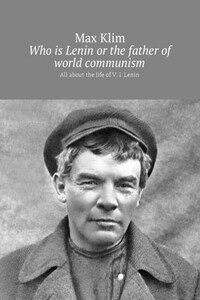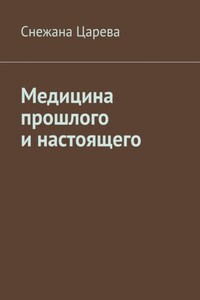Vladimir Lenin is the great leader of the working people of the whole world, who is considered the most outstanding politician in world history, who created the first socialist state.
The Russian communist philosopher-theoretician, who continued the work of Marx and Engels, whose activity was widely deployed in the early 20th century, is still of interest to the public today, as its historical role is not only significant for Russia, but for the whole world. Lenin’s activities have both positive and negative assessments, which does not prevent the founder of the USSR from remaining the leading revolutionary in world history.
![]()
Childhood, education and upbringing
Vladimir Ilyich Lenin (real name Ulyanov, April 10 (22) 1870, Simbirsk – January 21, 1924, Gorky estate, Moscow province) – Russian and Soviet political and state leader, revolutionary, creator of the Bolshevik Party, one of the organizers and leaders of the October Revolution of 1917 year, chairman of the Council of People’s Commissars (government) of the RSFSR and the USSR. A philosopher, Marxist, publicist, the founder of Marxism-Leninism, the ideologist and creator of the Third (Communist) International, the founder of the Soviet state. The sphere of basic scientific works is philosophy and economics.
Vladimir Ilyich Ulyanov was born in Simbirsk (now Ulyanovsk), in the family of Ilya Nikolayevich Ulyanov (1831—1886), inspector and director of the traditional schools of the Simbirsk province, – the son of the former serf farmer of the Nizhny Novgorod province Nikolai Ulyanov (variant of the surname: Ulyanin), married to Anna Smirnova – the daughter of an Astrakhan petty bourgeois (according to the version of the Soviet writer Shaginyan ME, descended from the genus of baptized Chuvashes). Mother – Maria Aleksandrovna Ulyanova (nee Blank, 1835—1916), of Swedish-German descent by mother, and of Jewish by father. IN Ulyanov rose to the rank of a state councilor. In 1879—1887 Vladimir Ulyanov studied at the Simbirsk gymnasium, headed by FM Kerensky, the father of AF Kerensky, the future head of the Provisional Government (1917).
In 1887 he graduated from the gymnasium with a gold medal and entered the law faculty of Kazan University. FM Kerensky was very disappointed with the choice of Volodya Ulyanov, since he advised him to enter the university’s history and verbal faculty because of the great successes of younger Ulyanov in Latin and literature. In the same year, 1887, on May 8 (20), Vladimir Ilyich’s elder brother Alexander was executed as a participant in the Narodnaya Volya conspiracy to assassinate the life of Emperor Alexander III. Three months after his arrival, Vladimir Ilyich was expelled for his participation in student riots caused by the new university statute, the introduction of police supervision of students and a campaign to combat “unreliable” students.
According to the inspector of students, who suffered from student unrest, Vladimir Ilyich was in the forefront of raging students, almost with clenched fists. As a result of the upheaval, Vladimir Ilyich, among 40 other students, was arrested the next night and sent to a police station. All those arrested were expelled from the university and sent to the “homeland”. Later, another group of students left Kazan University in protest against the repression. Among the volunteers who left the university was Lenin’s cousin, Vladimir Alexandrovich Ardashev. After the petitions of Lyubov Alexandrovna Ardasheva, Aunt Vladimir Ilyich, he was deported to the village of Kokushkino of the Kazan province, where he lived in the Ardashevs’ house until the winter of 1888—1889.
The beginning of revolutionary activity
In the autumn of 1888 Ulyanov was allowed to return to Kazan. Here he joined one of the Marxist circles organized by NE Fedoseev, where the works of K. Marx, F. Engels and G. V. Plekhanov were studied and discussed. In 1924 NK Krupskaya wrote in Pravda: “Plekhanov loved Lenin with passion. Plekhanov played a major role in the development of Vladimir Ilyich, helped him find the right revolutionary path, and therefore Plekhanov was surrounded for a long time by him a halo: he experienced extremely insignificant disagreement with Plekhanov”.
For some time, Lenin tried to farm in the estate he had bought in Alakayevka (83.5 desiatinas) in the Samara province. In Soviet times, the Lenin house-museum was created in this village. In the autumn of 1889, the Ulyanov family moved to Samara, where Lenin also maintained contact with local revolutionaries. In 1891, Vladimir Ulyanov passed an external exam for the course of the law faculty of St. Petersburg University. In 1892—1893, Vladimir Ulyanov worked as an assistant to the Samara attorney (lawyer) NA Hardin, leading in most criminal cases, conducted “state protection.” In 1893 Lenin came to St. Petersburg, where he settled himself as an assistant to the attorney (lawyer) MF Volkenstein.








